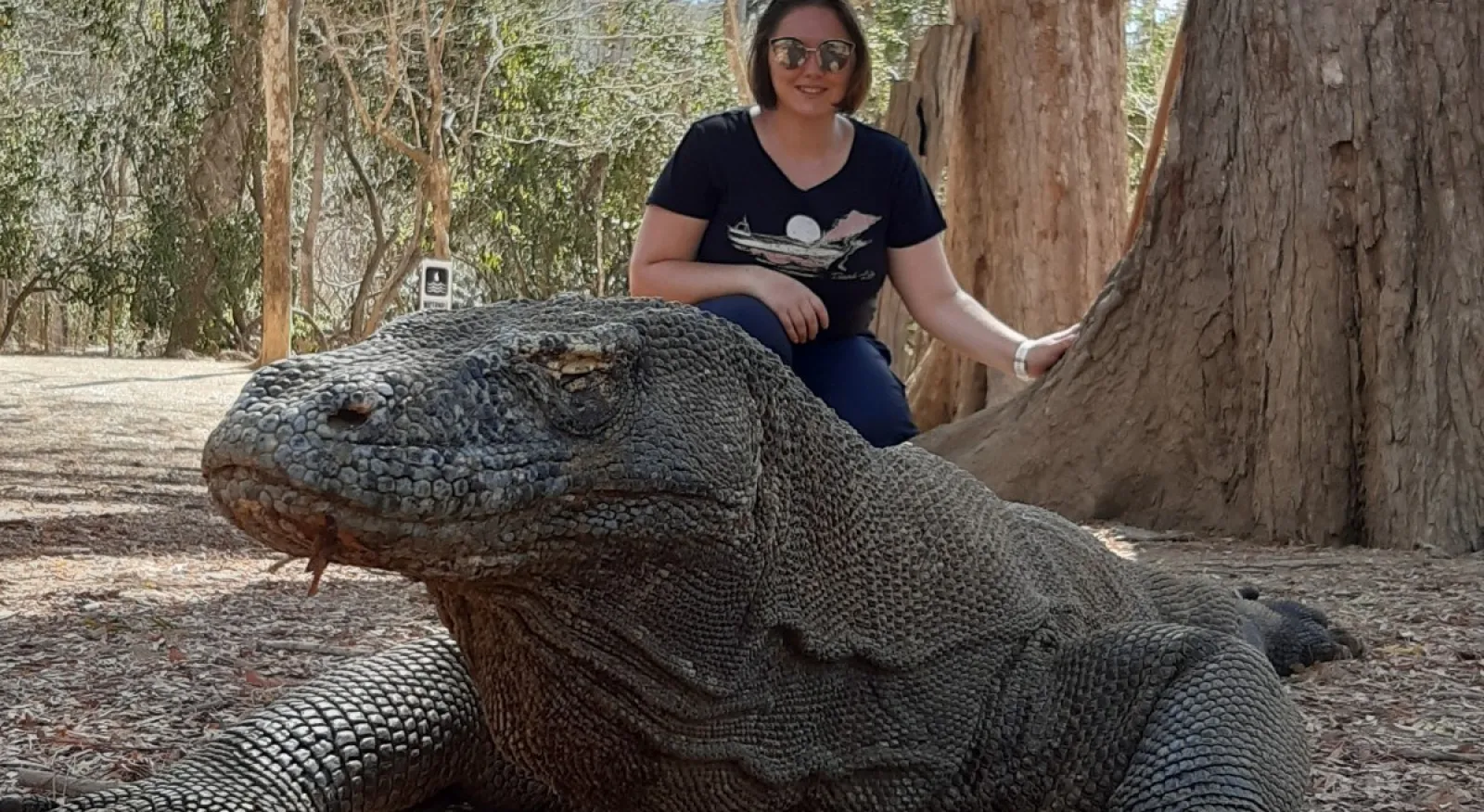Managing mental health overseas
Australian volunteer Sian explains her challenges with mental health in Indonesia and on her return to Australia.

Volunteering overseas is challenging in multiple ways. And when you throw mental health into the mix, those challenges can be even greater. Here, Sian Bullingham describes how she navigated her volunteer experience while managing bipolar disorder.
In June 2019 I hopped on board the iconic Flying Kangaroo and jumped across countries to the Indonesian archipelago. This followed a whirlwind two months of paperwork, vaccinations and a trip to Melbourne to meet my fellow Australian volunteers.
One year after landing in Jakarta, I was diagnosed with bipolar disorder. This came in the wake of being repatriated due to COVID-19, followed by months of social isolation, and my life and ambitions plummeting further south than the trip home between Jakarta and Sydney.
When the Australian Volunteers Program appeared on my radar, I knew it was what I wanted. With assignments spanning LGBTQIA+ rights, environmental conservation, tourism, nutrition and education - it was simply a matter of finding a role that I could best contribute to.
I knew that being an Australian volunteer meant that I would have a strong support system, even if I didn’t yet know what support I would need.
Within a month of applying to the program, I found out I had been accepted as the Education Engagement Officer for the United Nations Information Centre (UNIC) in Jakarta. I felt a rush of relief at the prospect of accomplishing a feat I had worked towards for years. I would be talking directly to the most influential demographic in the world: Gen Z.
However, my joy was shadowed by the uncertainty of managing long-standing depression and anxiety in an entirely foreign context.
I arrived with 15 other intrepid volunteers, and we were quickly thrown into the deep end as we spent a month in Yogyakarta learning Indonesian. This gave me the opportunity to learn more about the culture of the country and form strong friendships with fellow volunteers – a network that would be critical in the coming months.
Living in Jakarta was an entirely different experience. Preparation and support from the in-country team meant that I could cope with the initial difficulties: finding accommodation, my favourite gado-gado spots and entering an international workplace for the first time in my life. As time went on, the challenges become more complex.
Challenge one: Lack of familiarity with my new working and living environment
Coping strategies: Who doesn’t get nervous when starting a new job? I leveraged my inquisitive spirit to ask questions, using these to alleviate thoughts of self-doubt. Forming friendships with other Australian volunteers in Jakarta and further away meant we could share our experiences, drastically improving my feelings of isolation.
Extensive research before and during my assignment meant I was able to approach new situations in Jakarta with some confidence. However, when circumstances differed from my expectations – which was most of the time – I struggled.
Challenge two: Stress
Coping strategies: This was a biggie. Managing stress was my biggest challenge, so I was forced to use my most powerful coping mechanism yet – a solo trip to fulfil my lifetime dream of going to Komodo National Park. A three-day catamaran trip, scuba diving next to manta rays, an entire island almost exclusively to myself and seeing the legendary Komodo dragons up close meant that I had a week feeling the most relaxed I ever had in my life.
Interspersing extreme relaxation with intense periods of stress in Jakarta made my time overseas not just manageable but exhilarating.
Challenge 3: Rats in my room
Coping strategy: Get a new room.
These were by no means the only challenges I faced, and the coping strategies didn’t always work.
Then COVID-19 plagued the world.
Being in the communications office of the UN ensured I received daily updates of the pandemic. When the Australian Government declared the entire world a no-go zone, I was already too stressed to handle the three-days I had to pack up my life in Jakarta and return to Australia.
A critical source of support in this situation was the free counselling service offered by the Australian Volunteers Program. During my mental health emergency, the counsellor helped me navigate my thoughts to reach a place of rationality.
Going into Indonesia, I knew next to nothing about what lay ahead of me. I certainly didn’t know exactly what support I had, only that I knew that I would have it. It turns out that this is true for mental health support in Australia. My support team at home – my GP, family and friends -helped lead me to a diagnosis and strategies that suited me and my personal challenges.
Going overseas, uncertainty is unavoidable. If I could offer advice from my personal experience, I would say that your fear of uncertainty is unfounded. There will be a solution, even if it does not work out the way you expected.
It is and will always be different for every volunteer. If you need ongoing medical support, there will be options. And if you need time to yourself, there will be people who can direct you to the nearest private island.